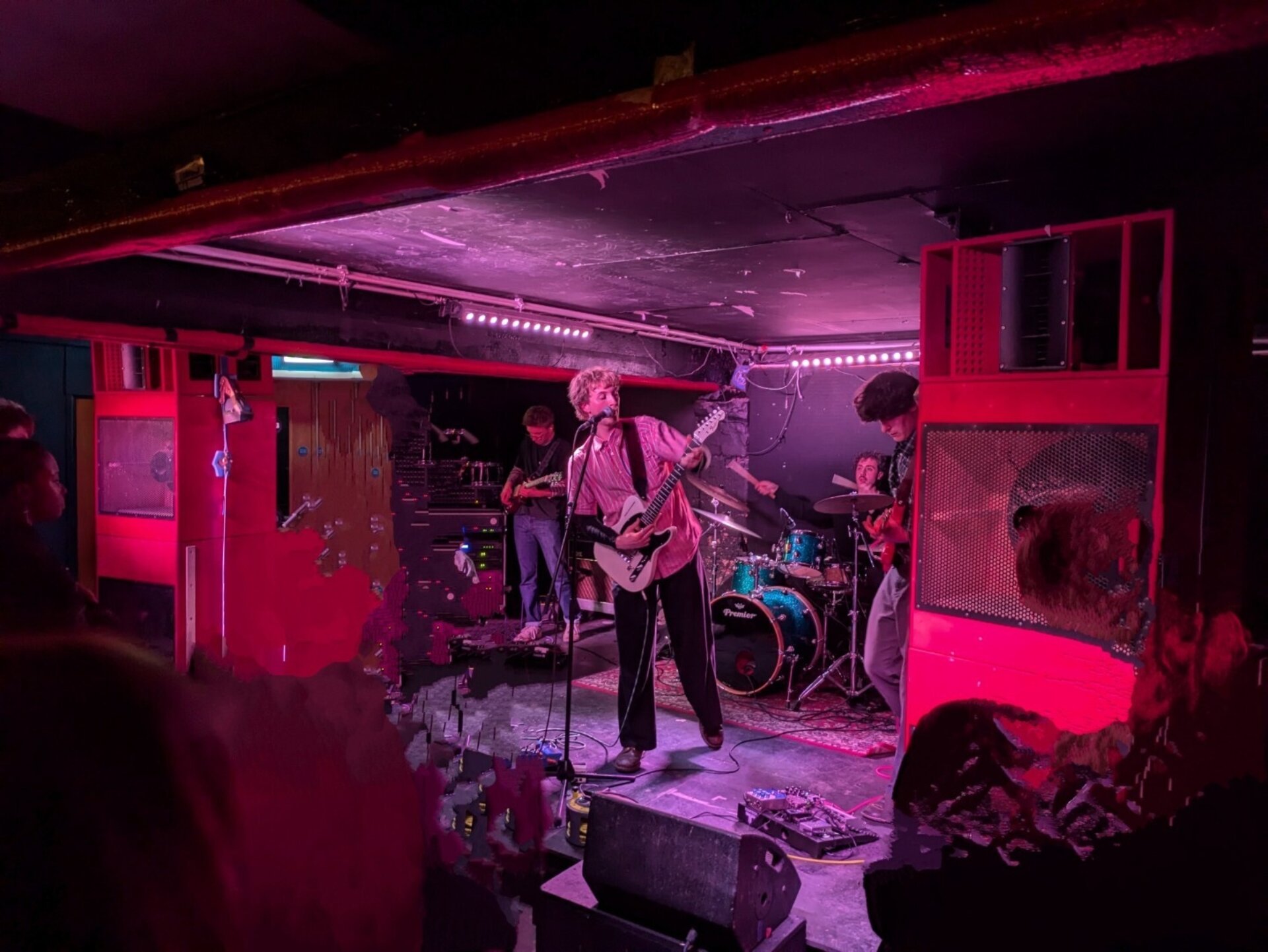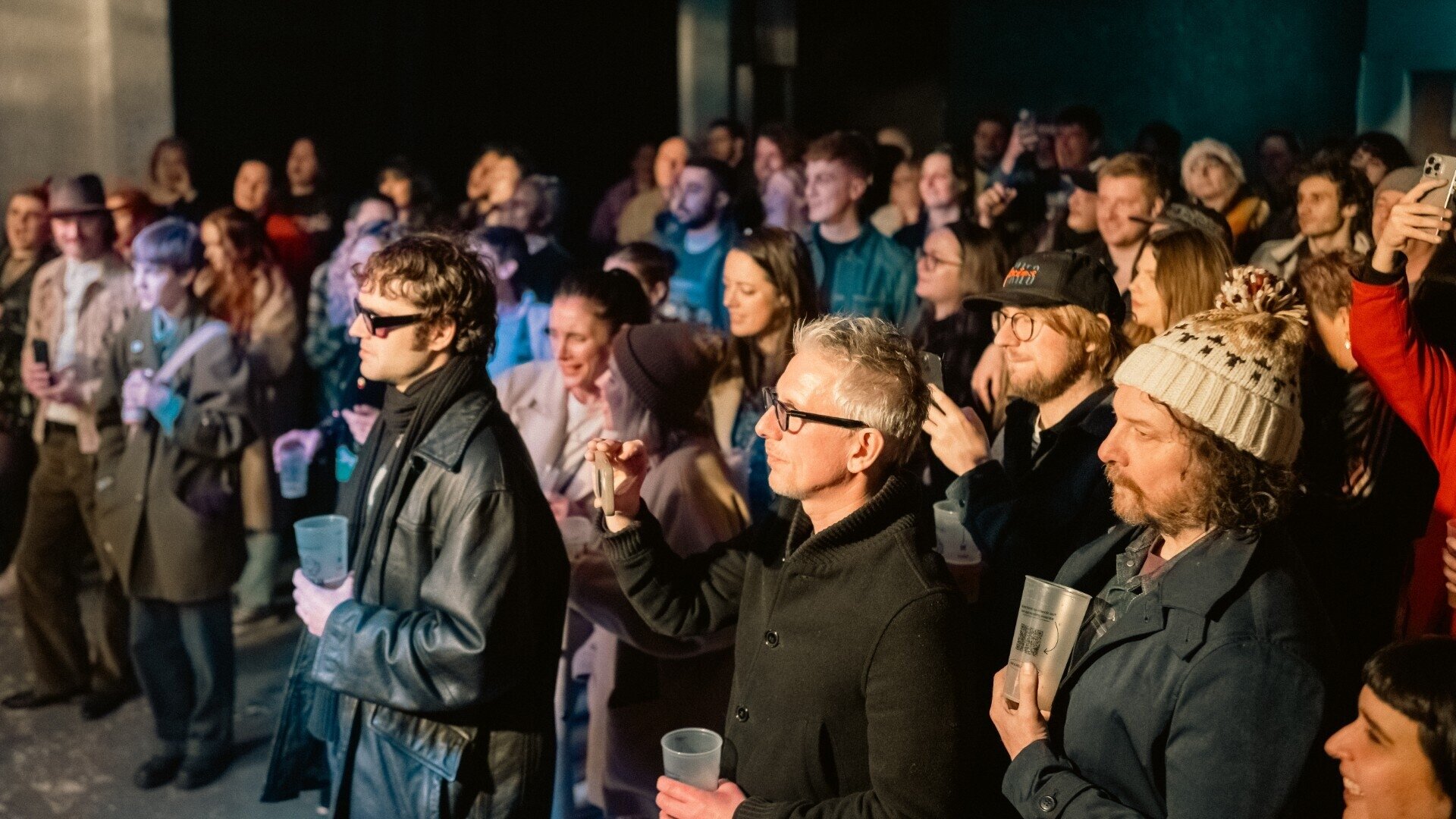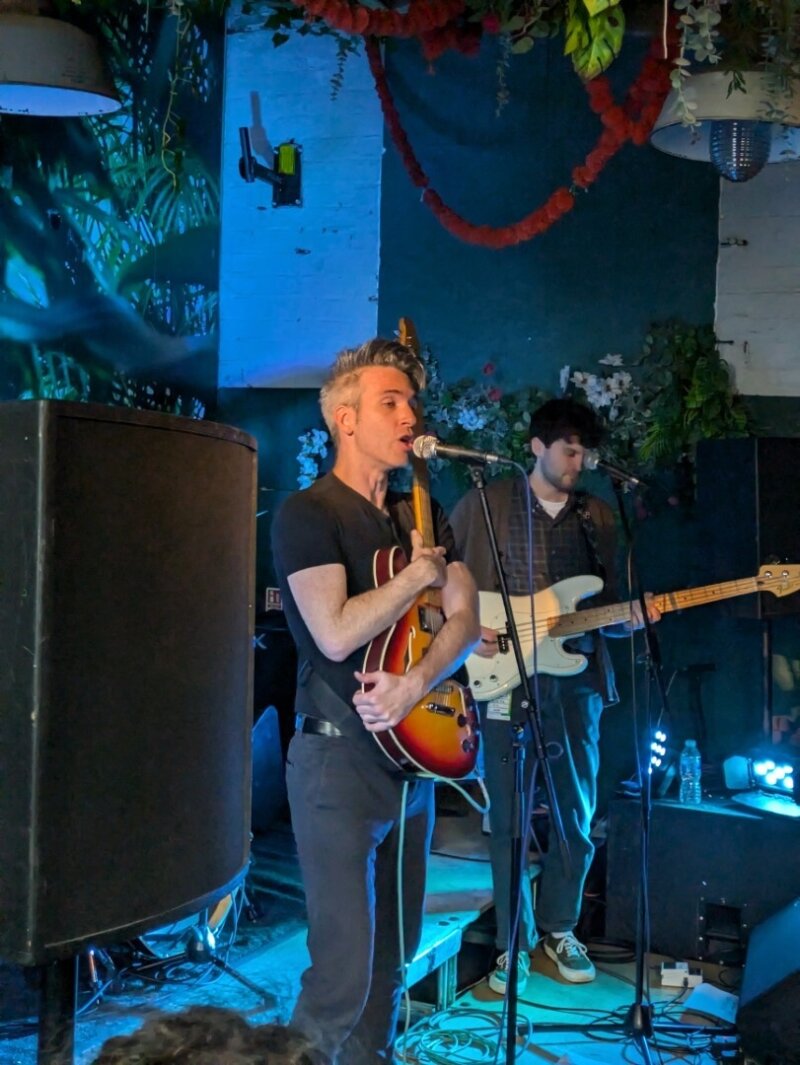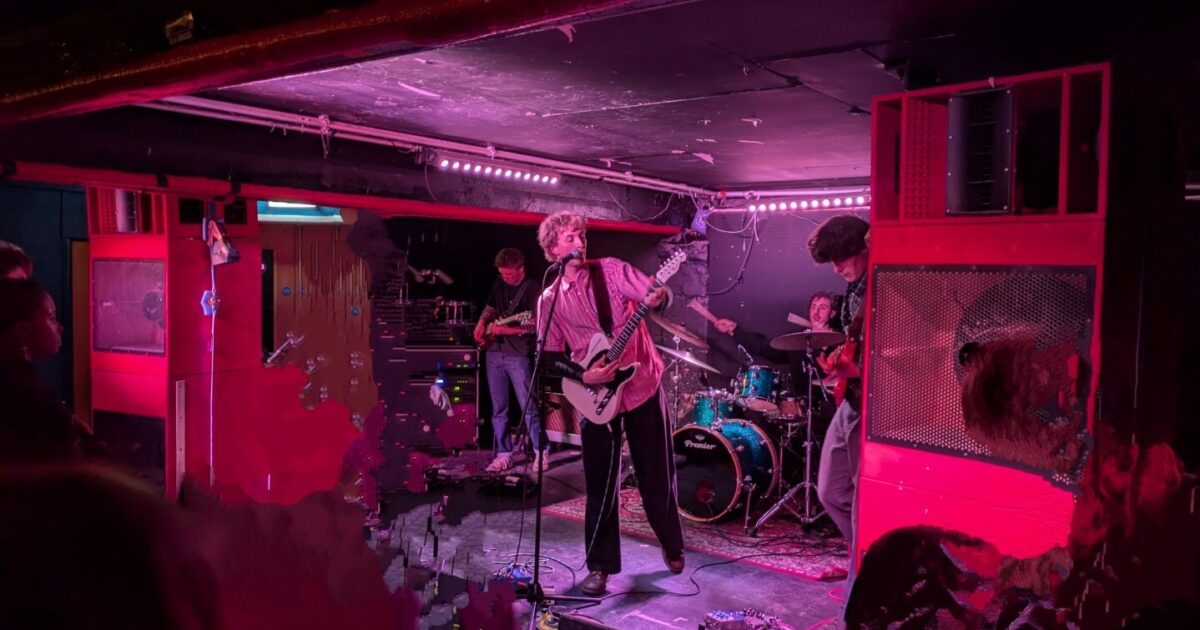
Dove Ellis performing at Sidney & Matilda during last year’s Float Along Festival.
Steve Hunting.
There’s a certain goosebump moment when you arrive at Sidney & Matilda. You can almost smell the rich history imbued in the cobbled entrance and canopied courtyard before the modern neon kitsch of the bar space hoves into view, proudly displaying a range of high-quality local beer alongside posters for forthcoming attractions.
Hammering away intently at their laptops are Mark Riddington and Paul Tuffs, venue manager and director respectively, aided and abetted by “the two James’”. It’s a busy time at S&M, as the venue looks past the winter gloom towards an upcoming roster of (mainly) new live bands and artists.
To start, we wind things back to the beginning. How did Paul first get involved with S&M?
“I used to run Cafe Totem – you may remember it – and a mate ran an art gallery and asked me to look at the premises. We did a few events, and the basement was a cool space but it needed some work. We agreed to talk again in six months. The lease had expired at Cafe Totem – I knew that was coming – so we arranged some events here, got ready to move forward and then lockdown kicked in.”
Like Crookes Social Club and The Dorothy Pax, lockdown proved to be a pivotal moment for S&M. “That rather screwed things up, but we looked at options such as gigs in the yard outside, seated shows, groups of six, anything really,” Paul continues. “The rules seemed to change every week, but there was no money in it. We were pretty skint.”

A Sidney & Matilda crowd at the Jarred Up Christmas party.
Sidney & Matilda.
However, post-Covid things crept back to a semblance of normality, circumstances that resulted in Paul stepping in full-time as an investor to extend S&M to the three live spaces it has today. It all sounds straightforward, but as Paul explains, the structural issues affecting the building were a significant challenge.
“The rooms were all pretty much derelict, so to save money we had to do a lot of expensive work ourselves, aside from trades-based work that needed to be signed off. So we did all the ‘dog’ work between us. With 7am starts it was tough going.”
While the venue itself was being brought up to scratch, next came the need to address bookings in a post-Covid world. Did S&M find much pent-up demand from artists to play shows?
“Well, some bands we were booking pre-Covid simply stop rehearsing or playing, even some who were doing quite well at the time, but in their stead a new generation started up who recorded and practised via Zoom, and wanted to put on shows. A weird time.”
As this writer has previously reported, running a grassroots music venue isn’t easy. “We couldn’t charge people for these early shows, 30 or 40 people, so we used to pass a bucket around,” says Paul. “Table service drinks needed six staff, so we were losing a bloody fortune, but to be a great live venue we had to keep going to make things happen.” And there’s even a claim to fame: “I think we were the first venue in the country to put on a gig after lockdown finished,” Paul proudly points out.
It’s a real melting pot, and that makes S&M a place where people at different stages of their career can meet, network and engage
S&M is now intrinsically linked with the annual Float Along Festival. How has that large, one-day event changed the venue?
Venue manager Mark Riddington explains: “It puts us on the map, and keeps us involved in the national and international circuit. It gives us a bit of authenticity and confidence, especially getting 1,000 capacity artists playing a 200 capacity show here.”
Paul agrees: “It’s great to get up close and personal to bands. It’s real. You hear the snare drum. You hear the vocals. You hear the guitars from the amp. It’s not a facsimile – it’s a visceral sound”
How does S&M provide opportunities for fledgling artists? “With multiple rooms, we’ve got an 80 capacity [room] up to a 250 capacity, so we have a foot in each camp,” explains Mark. “We work with brand new, first gig local artists and bands who can do an ‘underplay’, who normally sell 500 tickets. That’s where the community engagement works, as bands start small and move up to a bigger room, we have that ability to support up-and-coming artists move forward.

Faint Paint performing at Sidney & Matilda.
Steve Hunting.
“At Float Along we had new artists in one room and Steve Lamacq in another. It’s a real melting pot, and that makes S&M a place where people at different stages of their career can meet, network and engage”
Of course in the past, artists would be unearthed and rough diamonds polished by record labels. But as Paul explains, that no longer exists “There’s no such thing as A&R – artist and repertoire – any more. Labels want a fully-rounded artist who plays to 500 capacity venues, so it’s very hard for bands to network and gain experience.”
“We had Mat Hook here who gave Steve Lamacq some tunes on a memory stick… the next week it got played on 6 Music, so we provided that opportunity,” says Mark. “Where else would you get that?”
One of the challenges within the industry is ensuring both promoters and artists have equal access to performances. How does Mark view getting that balance right? “We have a bit of a mix, and are at a tipping point now with external promoters such as Futuresound and Strange Days, but recently we’ve been booking more stuff in-house by finding space in the calendar for more local line-ups mid-week. It’s evolution, and means we can hopefully keep bands within the S&M infrastructure a bit longer.”
Like the Dorothy Pax, S&M also has state-of-the-art recording equipment. “We have multi-track mixing desks and provide high-quality recordings, stuff that’s been good enough to be played on Radio 1 and 6 Music,” says Paul proudly. “We are the music industry in action.”
Finally, we cover S&M’s role in the city – a responsibility that Paul takes very seriously.
“Culturally, we try to hold up a mirror to what’s happening in Sheffield, putting on club nights, MCs, electronica, jazz too,” he explains. “It’s not just guitar-based indie. There are marginalised communities who need representing, and we want to encourage that. It’s not good business sense these days to pigeon hole yourself as a venue, and I don’t know all of the things kids like, but the best we can do is be open to giving them a chance to play. That’s what S&M is about.”
From live recordings to open mic nights, as well as the provision of opportunities for unsigned bands and songwriters, S&M have a broad and consistent commitment to the cause of great new music in Sheffield. Providing a regular platform for all aspects of recording, playing and networking, as well as putting on must-see live shows, is very much at the heart of Paul and Mark’s ethos – and it’s an approach and attitude rooted in their collective love of music.
Learn more
Sidney & Matilda is located on the corner of Sidney Street and Matilda Street in Sheffield city centre.
Access info
Sidney & Matilda is a venue made up of multiple areas. Each area has varying levels of accessibility. The venue has an accessible toilet, which has level access from The Yard. Sidney & Matilda’s website has more comprehensive information about the accessibility of each area of the venue.
